In 1869, Germany had yet to come into its own as a sovereign nation. Forty-five years later, she was one of the Great Powers of all Europe.
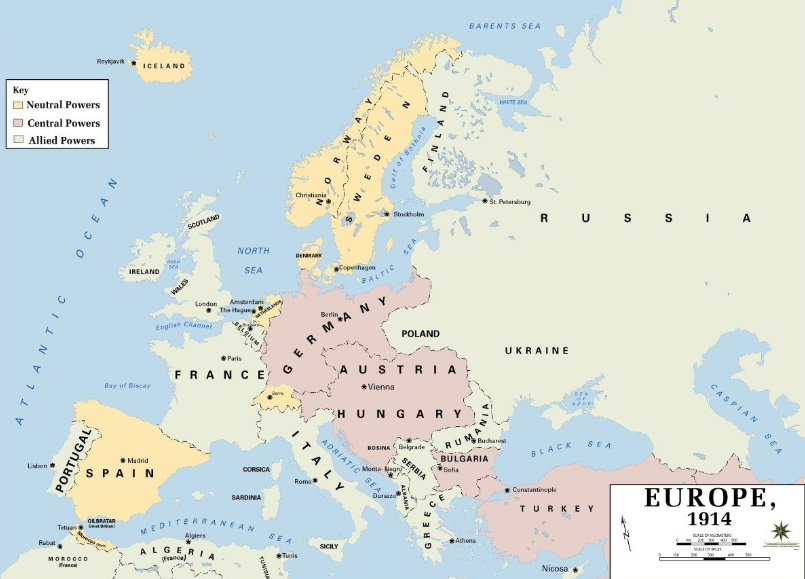
Alarmed by the aggressive growth of her historic adversary, the French government increased compulsory military service from two years to three, to offset the advantage conferred by a German population of some 70 million, contrasted with a French population of 40 million.
Joseph Caillaux was a left wing politician, once Prime Minister of France and, by 1913, a cabinet minister under the more conservative administration of President Raymond Poincare.
Never too discreet with his personal conduct, Caillaux paraded through public life with a succession of women, who were not Mrs Caillaux. One of them was Henriette Raynouard.
In 1911, Madame Raynouard became the second Mrs Caillaux.
A relative pacifist, many on the French right considered Caillaux too “soft” on Germany. One of them was Gaston Calmette, editor of the leading right-wing newspaper Le Figaro, who regularly excoriated the politician.
On March 16, 1914, Madame Caillaux took a taxi to the offices of Le Figaro. She waited for a full hour to see the newspaper’s editor before walking into his office and shooting him at his desk. Four out of six rounds hit the mark. Gaston Calmette was dead before the night was over.
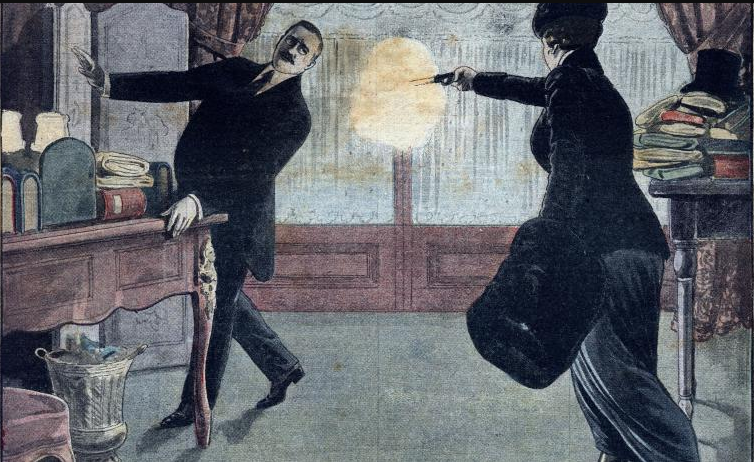
It was the crime of the century. This one had everything: left vs. right, the fall of the powerful and all the salacious details anyone could ask for. It was the OJ trial, version 1.0, and the French public was transfixed.
The British public was similarly distracted by the latest in a series of Irish Home Rule crises.
The Austro-Hungarian Empire, a sprawling amalgamation of 17 nations, 20 Parliamentary groups and 27 political parties, desperately needed to bring the Balkan peninsula into line, following the June 28 assassination of the heir apparent to the dual monarchy.
That individual Serbians were complicit in the assassination is beyond doubt, but so many government records of the era have since disappeared it’s impossible to determine official Serbian complicity.
Be that as it may, Serbia had to be brought to heel.
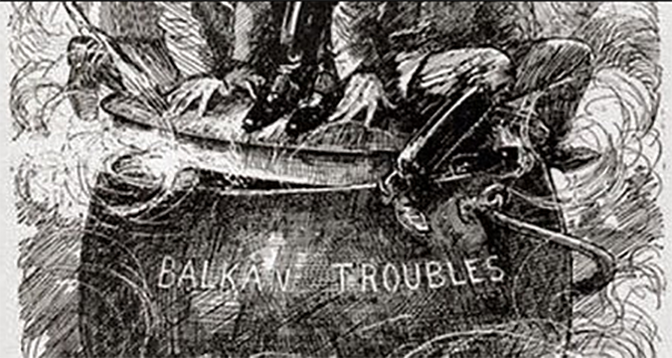
Having given Austria his personal assurance of support in the event of war with Serbia, even if Russia entered in support of her Slavic ally, Kaiser Wilhelm of Germany left on a summer cruise in the Norwegian fjords.
The Kaiser’s being out of touch for those critical days in July has been called the most expensive maritime disaster in naval history.
The Austro-Hungarian Empire produced a deliberately unacceptable ultimatum delivered to Serbia on the 23rd. It was little more than a bald pretext for war. Czar Nicholas wired Vienna as late as July 27, proposing an international conference concerning Serbia. To no avail. Austria responded that same day. It was too late for such a proposal.
The Austro-Hungarian Empire declared war on Serbia on July 28. Madame Caillaux was acquitted on the same day, on the grounds that hers was a “crime of passion”.
Russia mobilized in support of Serbia. Imperial Germany feared little more than a two-front war with the “Russian Steamroller” to the east and the French Republic to the west.
On August 3, British Foreign Secretary Sir Edward Grey announced before Parliament, his government’s intention to defend Belgian neutrality, in accordance with the Treaty of London, signed decades earlier.
German diplomats dismissed the 1839 commitment as a “scrap of paper”.
Germany invaded neutral Belgium on August 4 in pursuit of the one-two punch strategy by which she sought first to defeat France before turning to face the larger and presumably slower Russian adversary.
True to her commitments, the United Kingdom declared war on Germany the same day.
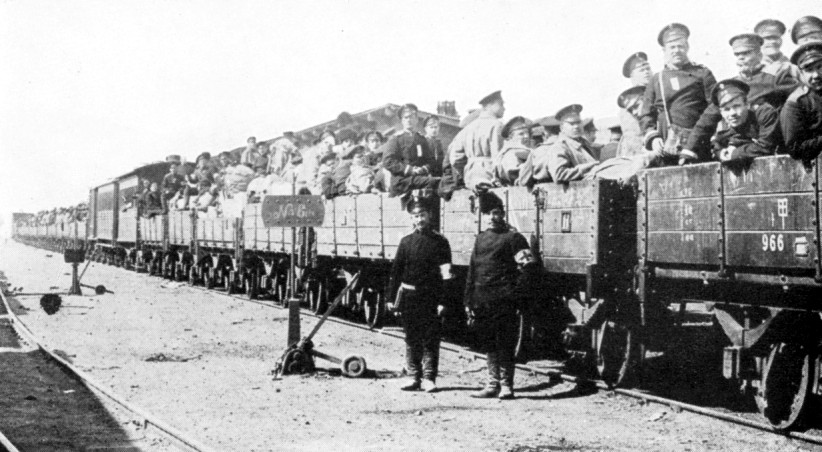
Meticulously prepared timetables took over where the diplomatic bungling of the “July crisis” left off. France alone had some 3,781,000 military men under orders before the middle of August, arriving at the western front on trains arriving as often as every eight minutes.
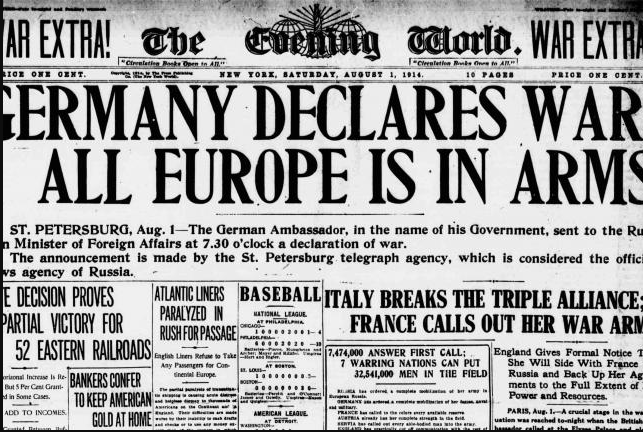
This time there would be no “Phoney War”, no “Sitzkreig”, as wags were wont to call the early days of WWII.
Few could imagine a cataclysm to rock a century and beyond, a war in which many single day’s fighting produced casualties equal to that of every war of the preceding 100 years, combined.
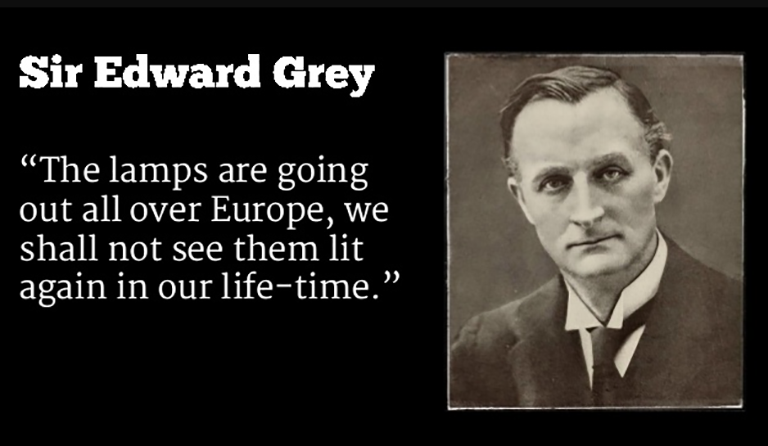
Fewer still understood on this date, one-hundred and nine years ago, today. The four horsemen of the Apocalypse, had come.



You must be logged in to post a comment.